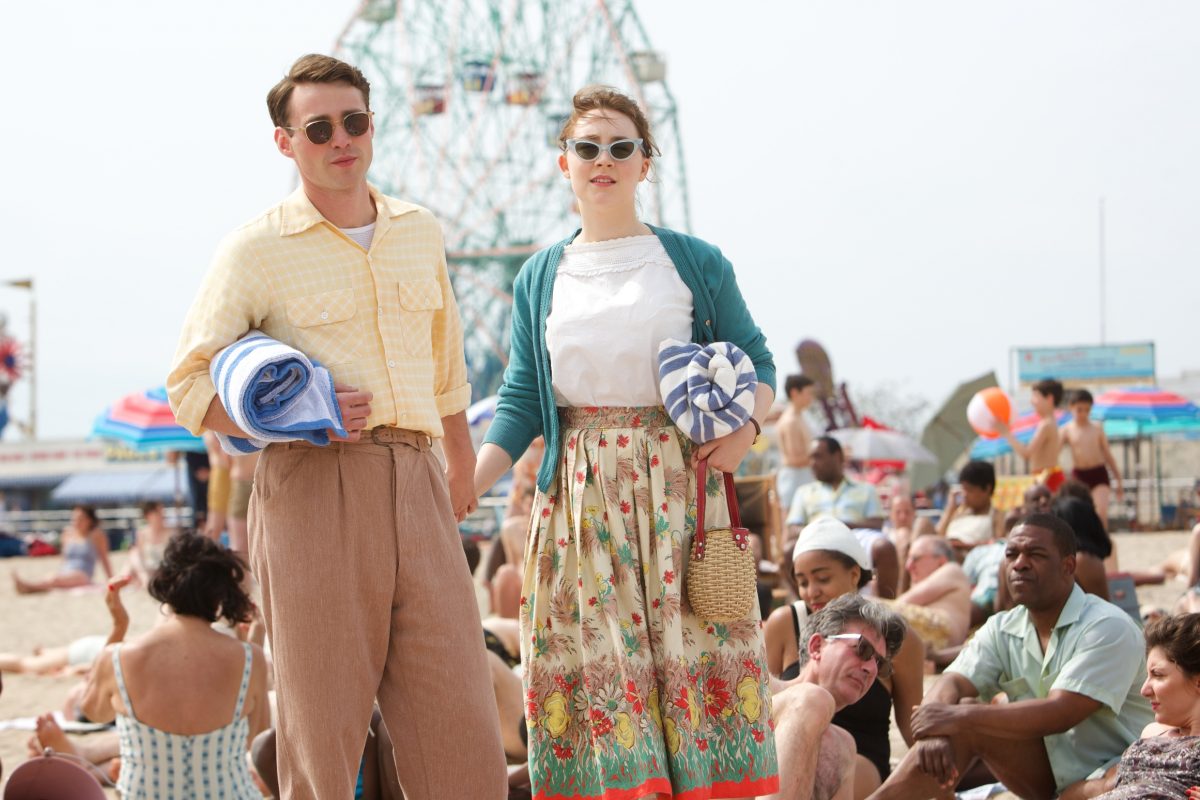
Brooklyn is the very essence of a simple story, beautifully told. It follows the journey of Eilis Lacy (Saoirse Ronan), who leaves her small village in Ireland in the 1950s in search of a better life in Brooklyn. Of course, it’s a journey that many took, but by focusing on just this one journey, this one girl, Brooklyn reminds us just how courageous these immigrants were. When Eilis’s ship sets sail, she can’t be more than 19 years old. She tremulously waves goodbye to her tearful older sister Rose (Fiona Glascott). Her aging mother (Jane Brennan) is so distraught, she can’t bring herself to look. The journey itself is harrowing. A single bowl of mutton stew leads to vicious sea-sickness that lasts the entire course of the trip. And then she arrives—alone, without friends or family, in a country she’s only read about.
Eilis moves into a boarding house run by the stern, but good-hearted Mrs. Kehoe (Julie Walters), where the other boarders are cliqueish and gossipy, more experienced with boys and life than she is. It’s been arranged for her to have a job at a department store, where’s she’s miserable. And then one night, she attends a dance for Irish-Americans, and she meets a boy with laughing eyes—he’s Italian, as it turns out—named Tony (Emory Cohen). He courts her, he invites her home (she practices twirling spaghetti into a spoon at the boarding house), she meets his warm but rambunctious family, they spend a weekend in Coney Island (she buys a pair of glamorous sunglasses just for the occasion and learns it’s okay to wear a bathing suit under one’s clothes), and they fall in love.
Then, she receives some bad news from home and is forced to sail back to Ireland. Her best friend sneakily fixes her up on a date with an earnest and likeable young man named Jim (Domhnall Gleeson), she gets a good temporary job that could become permanent, her mother begins to rely on her for household chores, and she falls into the easy rhythms of life back home. Suddenly, she’s torn between two lives—the new one she has forged in America with Tony and the old life, where everything is familiar.
What Brooklyn is about, really, is a young woman finding herself, forging her own path, and recognizing her own strength. It’s also about a kind of optimism that second-generation New Yorkers like Tony felt, as many left the city and began the inevitable migration to the suburbs. It’s a shimmeringly beautiful film, directed with great care by John Crowley—dreamy and painterly in its depiction of Brooklyn, Coney Island, and the Irish coast. It’s the attention to detail that makes it so special—little things like the sunglasses and the twirled spaghetti. It has a deeply empathic script by Nick Hornby, based on Colm Tóibín’s novel. In the end, though, what will stay with you are the performances: Cohen as the lovestruck Tony, embodying a kind of can-do, New York charm; Walters so mirthfully jaded as the seen-it-all Mrs. Kehoe; but mostly Ronan, who evolves from a dutiful girl to a self-actualized woman before our eyes.
Brooklyn is proof that not a lot has to happen in a film for it to contain multitudes.
